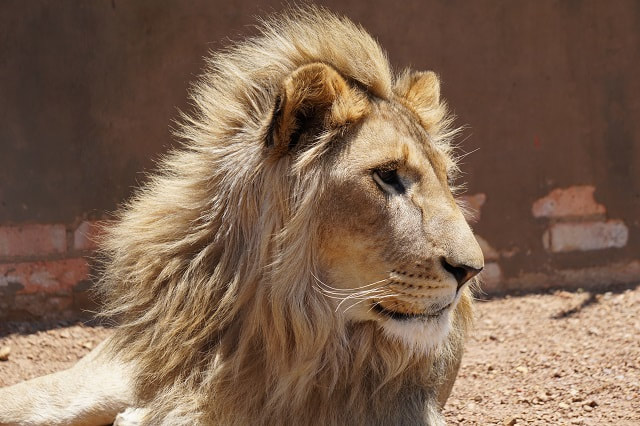
21 December 2017
By Steve Wiggins and Chris Mercer
Peter Flack’s (“South African lawyer, business man and hunter”) recent piece in the Daily Maverick, titled “It is canned killing, not hunting, that hampers conservation efforts” (17 December 2017) offers a hunter’s perceived threats to conservation in South Africa (and beyond):
1. canned hunting;
2. hybrid breeding of target species; and
3. the animal rights movement.
Dealing with those claims seriatim:
Canned Hunting
How can ‘canned’ possibly be a major threat to conservation on the basis advanced by Flack; namely, the absence of fair chase - where in theory, the hunter’s quarry has a (limited) chance to evade its own unnatural death? What on earth does fair chase have to do with conservation?
Whether a target is fairly chased or not, it still bleeds and dies and is removed from the environment. On the contrary, there is an argument that the canned hunting of captive bred lions causes less damage to lion conservation in one respect than hunting wild lions, with all the damage the latter causes to pride dynamics.
No, the real objection that Flack has to canned hunting is that it is a reputational threat to the existence, ‘good reputation’(sic) and profitability of the whole hunting industry. He fears that the increasing public disgust ‘canned’ is causing is pulling down the whole trophy hunting industry with it.
We should not forget the negative conservation implications of ‘canned’ (the hunting and lion bone trade) due to its lack of any credible proven positive conservation contribution or conservation need.
There are no proven conservation benefits of 'canned' (‘captive’, ‘ranch’) - but quite the opposite, with the potential detrimental impact still to be adequately acknowledged and addressed by the Republic of South Africa's Department: Environmental Affairs (DEA);
In their 29 November 2017 “Open letter to Secretary Zinke: The African Lion Conservation Community’s Response,” the need for any conservation (rewilding potential) from South Africa’s ‘canned’ industry was rejected.
Hybrid Breeding
Indeed the cross-breeding of species to produce mutant freaks for the hunting industry merely underlines the threat that hunting poses to wildlife. If the breeders will do anything to grasp at the almighty dollar then this supports our view that hunting is not about conservation at all, but is driven by commercial profiteering.
Animal Rights
It is popular in hunting circles to blame ‘animal rightists’ for hunting’s shortcomings and to throw epithets like ‘radical, extremist, and a threat to conservation.’ But these labels assume that hunting is conservation. The animal welfare movement certainly damages the hunting industry, but whether it damages conservation depends on the proven truth of hunting’s animal welfare claims, and the falsity of hunting propaganda. The truth is always subversive of an entity built upon lies.
Accordingly we would contend that the three major threats to conservation in Africa are:
1. the unrelenting growth of the human population which is devouring the wilderness and causing massive habitat loss for wildlife.
2. the lamentable failure of African governments to devote available resources to protecting wilderness and existing wildlife populations.
3. The hunting industry. Not only does the hunting industry inflict massive damage upon wildlife populations in Africa, but by expanding its profitable business model of breeding wildlife species as alternative livestock, the industry is effectively changing the land-use from the serious business of producing food for the nation, to mere entertainment.
Is it really in the national interest that vast tracts of land which represent food security are being converted into providing hunting entertainment for a wealthy elite?
The assertion is made by Flack that the “1977” trophy hunting ban implementation in Kenya and Botswana’s move to ban trophy hunting in 2014 have been “manifest disasters” for wildlife because of the loss of trophy hunting’s claimed ‘benefits’ – an oft repeated pro-hunting mantra.
Scientists conducting a 2009 study (“Effects of human – livestock – wildlife interactions on habitat in an eastern Kenyan rangeland”) believe the surge in domestic livestock is predominantly accountable for the drop in Kenya’s wildlife population – the three main causes cited for the drop in wildlife numbers are illegal poaching, larger numbers and ranges of domestic livestock, plus changing land use patterns on the ranches. There is no mention of trophy hunting’s absence as a cause/effect for the decline in Kenya’s wildlife since the ban was implemented in 1979.
Is Kenya an example of what will happen if trophy hunting is banned in a country? No, it is not. Kenya would seem to be an example of poor land management, poaching and wanton over-grazing, based on a culture where a man’s wealth and social status is directly linked to owning large herds of cattle, which dominate the grazing available to the detriment of wildlife.
Botswana's tourism figures surpassed 2 million in 2016, so clearly there is demand within Botswana for non-consumptive tourism (and long may it continue).
In support of his ‘hunting is a saviour’ arguments, Flack states “some simple, scientifically established facts” including the statement at point 5 of his article “…..those [endangered species] that had been hunted most assiduously had recovered best, for example….rhinoceroses.…” So, the claim is hunting saved the rhinoceros (referring to ‘Operation Rhino’ in the 1960s no doubt) and by logical extension of this claim, “assiduously” hunting and killing endangered species is a guaranteed saviour.
However, it is also a ‘fact’ that unregulated and excessive hunting pre-‘Operation Rhino’ overwhelmingly contributed to the decimation and plight of rhinoceros in the first place:
"South African populations of black and white rhinos (subspecies C. s. simum), both of which had been nearly extinct in the year 1900 due to uncontrolled hunting….”- ”Sustainable rhino horn production at the pointy end of the rhino horn trade debate,” Taylor et al., Biological Conservation (Vol. 216, page 60 - 68), December 2017.
So, any claims that hunting was the saviour of the rhinoceros as a ‘fact’ are somewhat disingenuous. Hence, any claims that “assiduously” hunting therefore must be endured as the saviour of all endangered species should be treated with incredulity.
